Recent release of Global Hunger Index 2020 places India with 27.2 index points and at 94th position among 107 countries indexed, which is a very scary situation indeed. The major problem is child stunting and child wasting. According to the data from Food and Agricultural Organization of the United Nations, World Health Organization, World Bank and United Nations Children’s Fund, globally, over 2 billion people do not have regular access to safe, nutritious and sufficient food. More alarming is the fact that out of them nearly 690 million people are hungry (not eating enough calories to meet their energy requirements), up 10 million since 2019. In addition, the COVID-19 pandemic may result in addition of about 83-132 million people to the already inflated number. They further estimate the impact of malnutrition (imbalanced feeding) either as undernutrition (nutrient deficiency) or overnutrition (excess energy intake resulting in overweight and obesity) to be about 257 trillion rupees per year. Thus, the global malnutrition problem is really threatening. It will further aggravate when the global population will be about 10 billion by 2050. This is added by a fact that there is a steady increase in hunger since 2014 together with rising obesity. It is not due to food unavailability only as about 14% of food produced is lost each year when it reaches the wholesale market and more food is wasted at the retail food and consumer stages (FAO, 2020). This clearly indicates the need to accelerate and scale up actions to strengthen food systems and protect people’s livelihoods.
In this context, Prani Bikas Dhara, a magazine dedicated for animal husbandry sector, published in local Odia language for the last five years and E-Planet Journal, based at Bhubaneswar dedicated to Agriculture and allied sectors organized jointly an awareness quiz on World Food Day and different aspects of food along with a webinar on ‘Food, feeding and world food day for ensuring zero hunger by 2030’.
In the awareness quiz being held through Google Forms is open till Monday (19.10.2020; 6 PM) already 1739 individuals from across the country participated in the quiz till 11.30 AM of Sunday. It can be attempted through the following link: https://forms.gle/XgBP8GsjSKdMhRcx6.
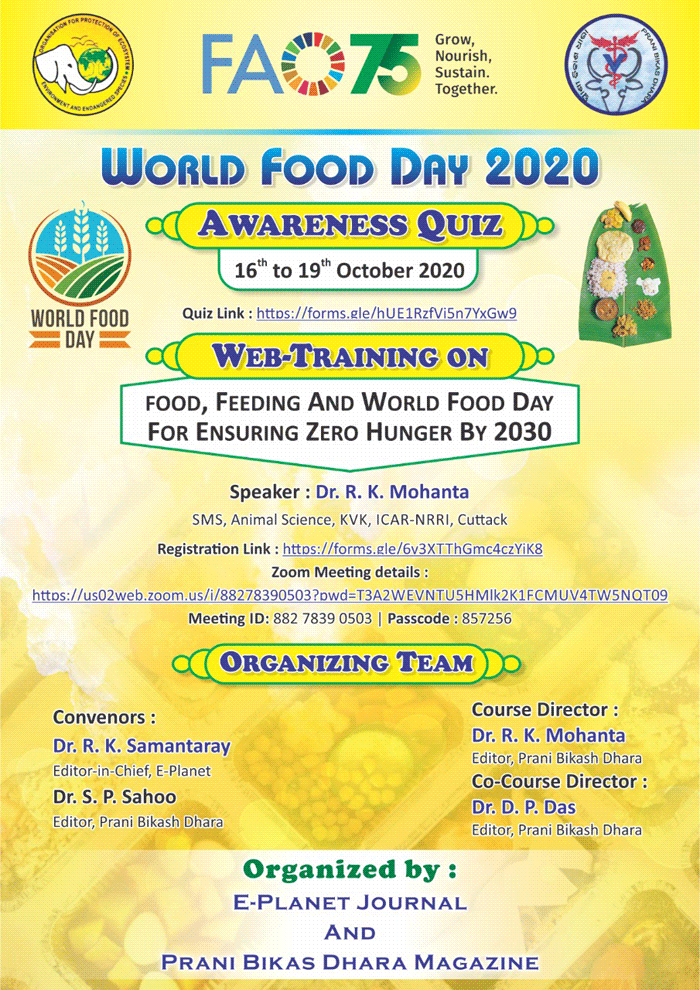
In the webinar Dr Ranjan Kumar Mohanta, Subject Matter Specialist (Animal Science), Krishi Vigyan Kendra, ICAR-National Rice Research Institute, Cuttack briefed about the current scenario of hunger and malnutrition, action points that we can implement in our daily life as suggested by FAO and certain additional points in addition to clarification on why we need to eat. About 156 people from across India participated in the webinar and discussed on the strategies and some facts about food and feeding strategies. The discussion went on to include that we can help to fight hunger by doing the following activities. Inclusion of seasonal and local food in our diet with buying judiciously and from local farmer markets, wherever possible.
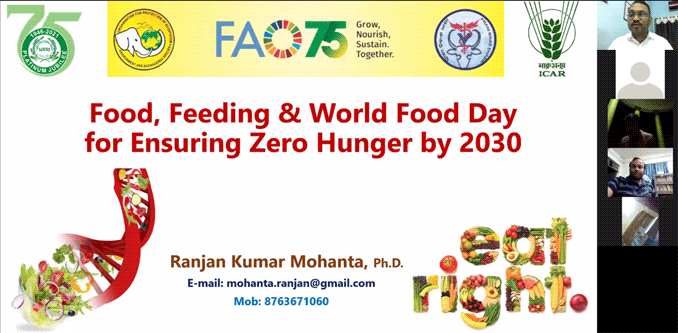
We should try to consume whole grains and multiple grain based atta and try to include as any varieties of dal, vegetables, fruits and other food items as possible. As per FAO, though there are about 30000 edible plants, we consume about 66% from nine plant species. That’s why we need to grow a variety of food to nourish people and sustain the planet. Encouraging to buy from local farmers will help in preservation of diverse crop varieties as small holders cultivate the maximum varieties of crops. We should support the government and other organization in implementation of food security related programs and activities along with minimizing our food waste and supporting community kitchens, awareness programs through both active participation and social media. If possible we can grow some of our own food at home.
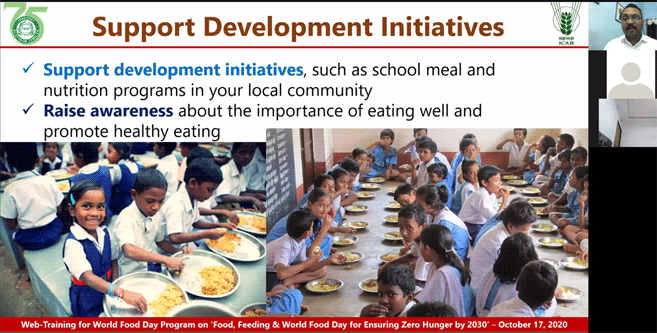
Our future food systems need to provide affordable and healthy diets for all and decent livelihoods for food system workers, while preserving natural resources and biodiversity and tackling challenges such as climate change. That’s why the theme of this years World Food Day is kept as ‘Grow, Nourish, Sustain.Together’ with emphasis on ‘growing diverse food crops to nourish our growing population and sustain the planet together’. Dr Ranjit Kumar Samantaray, Editor-in-Chief, E-Planet Journal welcomed the participants and threw light on different aspects of food, whereas, Dr Sarada Prasanna Sahoo, Editor, Prani Bikas Dhara and Director, Central Cattle Breeding Farm, Sunabeda offered vote of thanks. The program was technically assisted by Sri Satya Ranjan Rout and Ksheerod Pradhan. Really, our sincere and collaborative actions can only help our underfed fellow brothers and sisters.


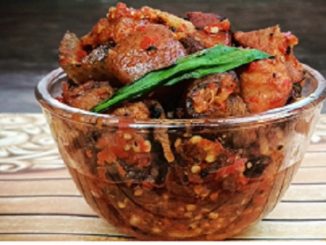
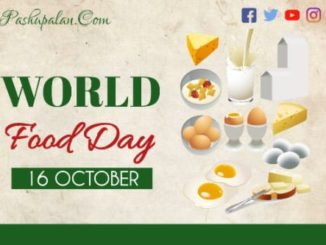
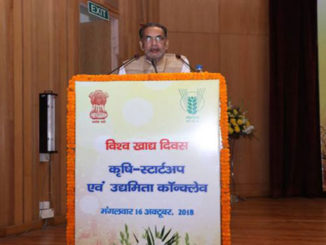

Be the first to comment